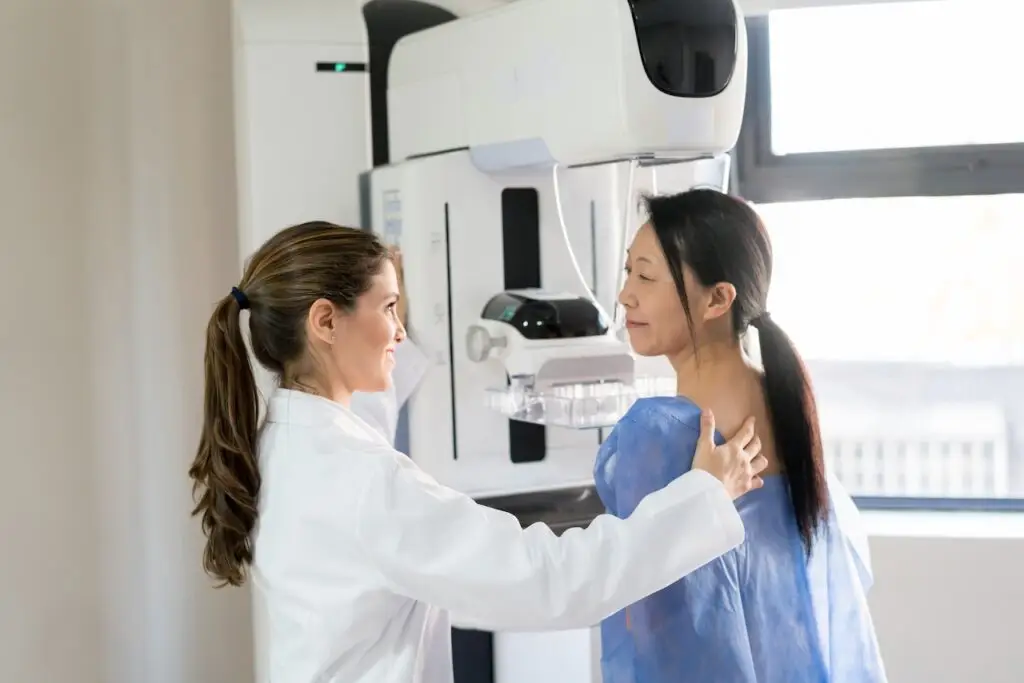The American Society of Clinical Oncology (ASCO) Annual Meeting is a major conference for oncologists worldwide where the latest innovation is unveiled. Taking place earlier this month in Chicago, the 2024 ASCO Annual Meeting featured over 200 sessions complementing the theme The Art and Science of Cancer Care: from Comfort to Cure.
We’ve compiled some of the visionary insights and findings within breast cancer that were unveiled at the conference to help you stay at the forefront of the newest groundbreaking research, developments, and treatments. Read more about them below.
Enhertu delays progression of HER2-low and ultralow metastatic breast cancer
In the phase III DESTINY-Breast06 trial, the antibody-drug conjugate Enhertu (or T-DXd) extended progression-free survival (PFS) by roughly five months compared with standard chemotherapy, for metastatic breast cancer with low or “ultralow” HER2 levels. This ultimately reduced the risk of disease progression or death by 37%. This study is significant as it builds upon the earlier success of the DESTINY-Breast04 trial, symbolizing new options for patients with HER2-ultralow expressions and allowing for doctors to potentially recommend Enhertu for a broader population earlier in their treatment.
Evidence-based guidance powered by NCCN Guidelines®
Personalized treatment plans shaped by the latest oncology standards—tailored to your diagnosis.
Get started
View your personalized treatment plan in the Outcomes4Me app
Use your diagnosis to unlock personalized NCCN Guidelines®-aligned recommendations.
Continue in app
Predictive testing to avoid overtreatment in HR+ HER- early breast cancer
Building upon the findings from I-SPY 2 Trial, this study highlights the ability of MammaPrint (a test that can analyze genes in breast cancer to help predict if tumors will spread or return) to identify tumors with increased immune activation. The data from this study suggests that early-stage, HR+HER2- MammaPrint High-2 tumors might benefit from adding immunotherapy to their chemotherapy treatment regimens. This study highlights the importance of understanding how tumor classification may determine different response rates to treatment, ultimately identifying patients most likely to respond and avoiding overtreatment for those who may not.
This study, sponsored by U.S.-based company Personalis and the nonprofit Breast Cancer Now, found that a new type of blood test can predict the recurrence of breast cancer in high-risk patients, months or even years before they relapse. The team from The Institute of Cancer Research, London, used an ultra-sensitive liquid biopsy to detect the presence of tiny amounts of cancer DNA left in the body following treatment for early breast cancer. Researchers screened for circulating tumor DNA (ctDNA) using a whole genome sequencing technique that can identify up to 1,800 mutations. This approach is much more sensitive and includes a wider range of cancer-related changes that could occur in a patient’s DNA. The results of this study showed that the detection of ctDNA at any point after surgery or during the follow-up period was associated with a high risk of future relapse and poorer overall survival. This study may help doctors start treatment earlier for patients at greater risk of relapse, rather than only having the ability to react once advanced cancer develops. Of note: while promising, this was a small proof of principle study and additional studies are needed.
Data shows the addition of ribociclib (Kisqali) to endocrine therapy reduces the risk of recurrence for high-risk, node-negative (N0) early breast cancer by 28%. Ribociclib is a type of targeted cancer drug known as a CDK 4/6 inhibitor used for patients with hormone receptor positive (HR +) and HER2 negative disease. The findings from this trial highlight ribociclib as a viable and well-tolerated treatment intervention that could reduce recurrence risk for patients diagnosed with high risk, node negative, early breast cancer.
Liquid biopsy assay could help to guide treatment options for patients with HER2 or ER+ cancers
Precede Bio’s liquid biopsy approach can predict estrogen receptor (ER) status and ER pathway activity in breast cancer and classify HER2 (human epidermal growth factor receptor 2) status in multiple cancers. Using just 1mL of plasma, the assay is minimally invasive and can measure epigenetic changes in cancer cells, and can be used to guide treatment options for patients with HER2 and ER-positive breast cancers.
For a deeper dive into the key findings from ASCO 2024, register for our webinar with UCSF breast oncologist Dr. Hope Rugo on June 13th from 12pm-1pm ET! Dr. Rugo will provide an in-depth analysis of the latest research and clinical advancements in breast cancer. Don’t miss out on this opportunity to engage directly with an expert oncologist and ask any questions you may have. Sign up for the webinar here.
Personalized support for real care decisions
Understand your diagnosis, explore clinical trials, and track symptoms--all in one place.
Get started
Compare treatments, prepare for appointments, and track side effects—all in the app
Built for your diagnosis, Outcomes4Me gives you the tools to make confident, informed decisions—right when you need them.
Continue in app






